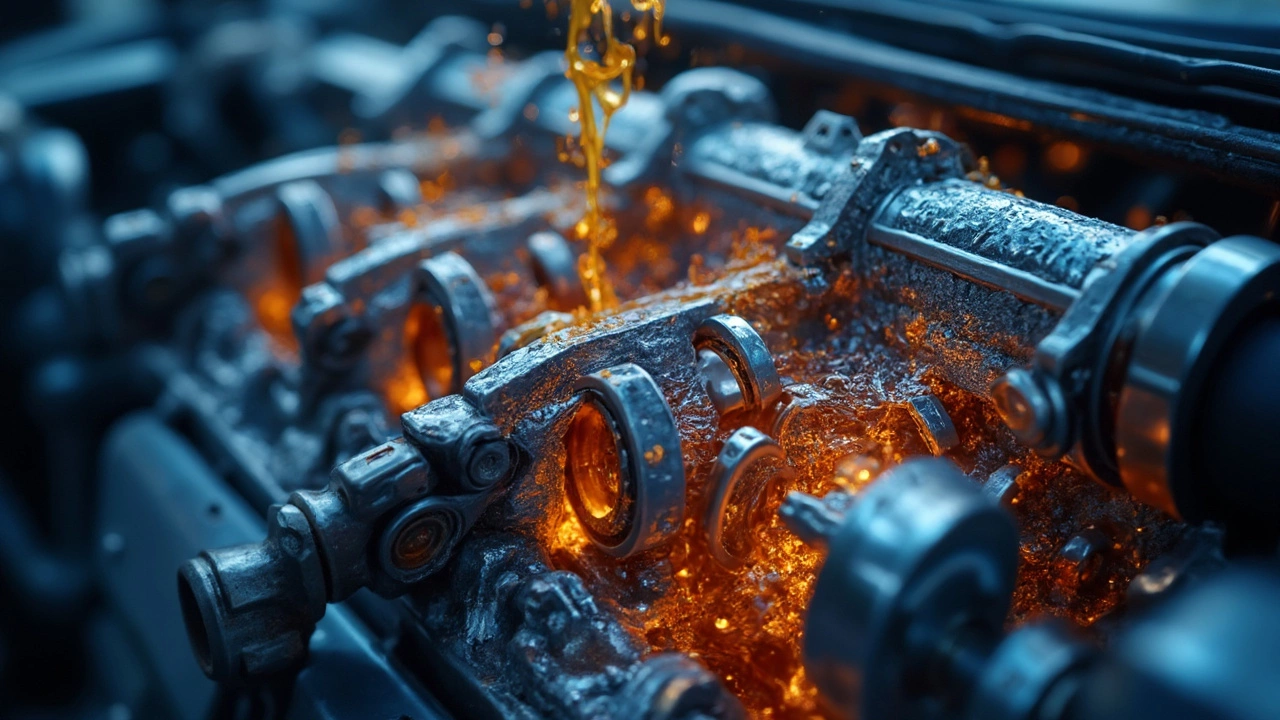Oil Pressure: What It Is and Why It Matters
When dealing with oil pressure, the force that moves lubricating oil through an engine’s moving parts. Also known as hydraulic oil pressure, it ensures that bearings, pistons, and camshafts stay coated and heat‑free. The engine oil, a specially formulated lubricant with a specific viscosity works hand‑in‑hand with the oil pump, a mechanical pump driven by the crankshaft that creates the pressure needed for circulation. Without adequate pressure, metal surfaces can grind, temperatures spike, and engine life shrinks dramatically. This relationship is simple: the pump generates pressure, the oil carries it, and the engine relies on it to run smoothly.
How You Know Something’s Wrong: Gauges, Sensors, and Warnings
Most drivers notice oil pressure problems through the oil pressure gauge, an instrument on the dash that displays real‑time pressure levels in pounds per square inch (psi) or a warning light linked to an oil pressure sensor, an electronic component that sends pressure data to the engine control unit. When the reading dips below the manufacturer’s safe range—often around 20‑30 psi at idle— the low oil pressure warning, a visual or audible alert indicating insufficient lubrication pops up. Low pressure can stem from a worn pump, clogged filter, or oil that’s too thin for the current temperature. Viscosity matters; thin oil flows easier but creates less pressure, while thick oil builds more pressure but may strain the pump. Understanding these links helps you diagnose before damage occurs.
In practice, keeping oil pressure in the sweet spot means checking oil level regularly, using the correct grade of oil, and swapping the oil filter at recommended intervals. If you hear that warning light, stop the engine quickly, check the dipstick, and look for leaks or a loose drain plug. Replacing a failing pump or sensor is usually cheaper than rebuilding an engine that’s run dry. By staying on top of pressure readings, you protect pistons, bearings, and camshafts—components that would otherwise wear out fast. Below you’ll find a collection of articles that dive deeper into clutch kits, brake pads, radiators, and more, all tied together by the same theme of keeping your vehicle’s vital systems—like oil pressure—healthy and reliable.

Engine Oil Low: What Actually Happens When You Run Out
May 13 2025 / Engine OilRunning your engine low on oil can lead to way more trouble than most people realize. Without enough oil, moving parts inside your engine lose their main source of lubrication and cooling. This can cause fast wear, overheating, and eventually engine failure. Catching the signs of low oil early can save you a mountain of repair bills. Here’s how running low on oil actually wrecks your engine and what you can do about it.
VIEW MORE